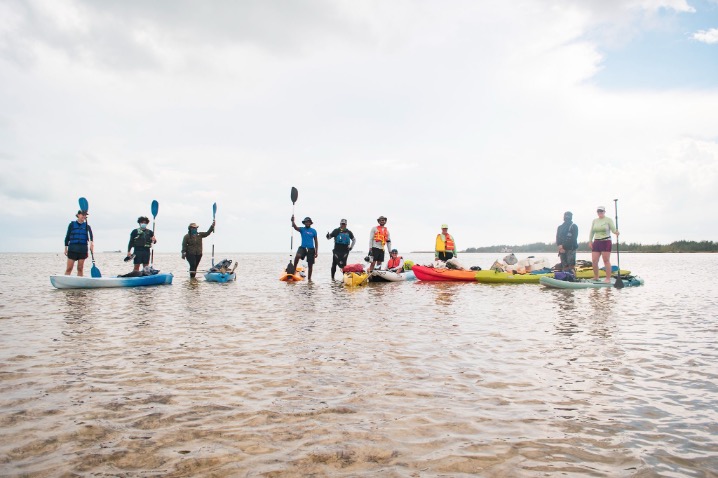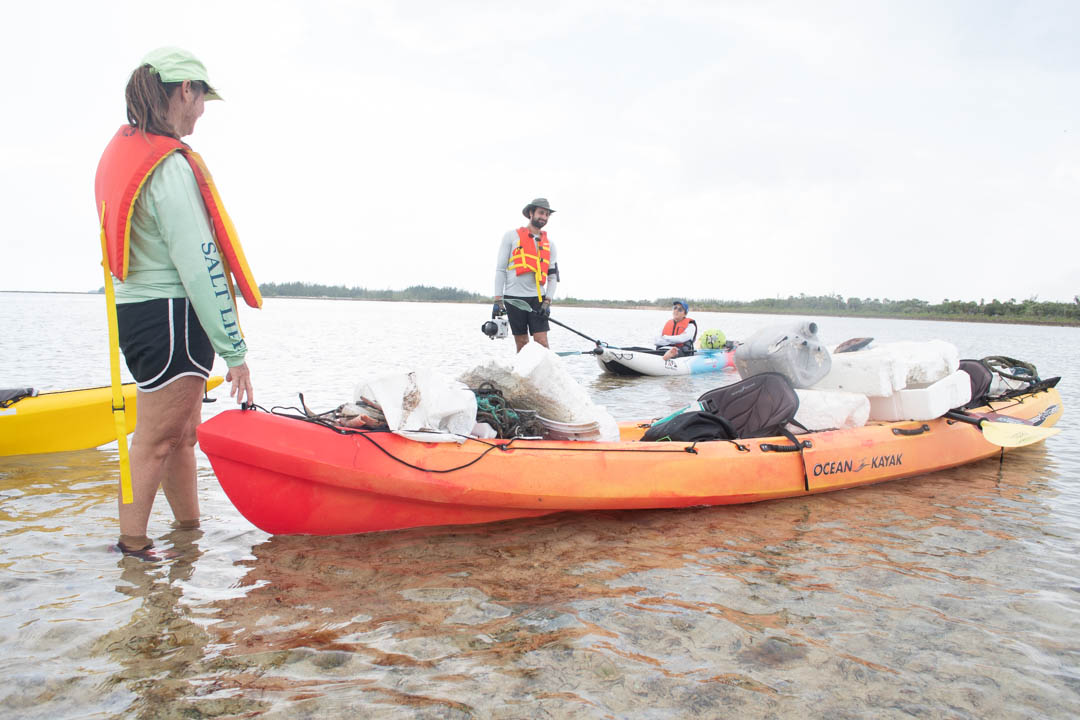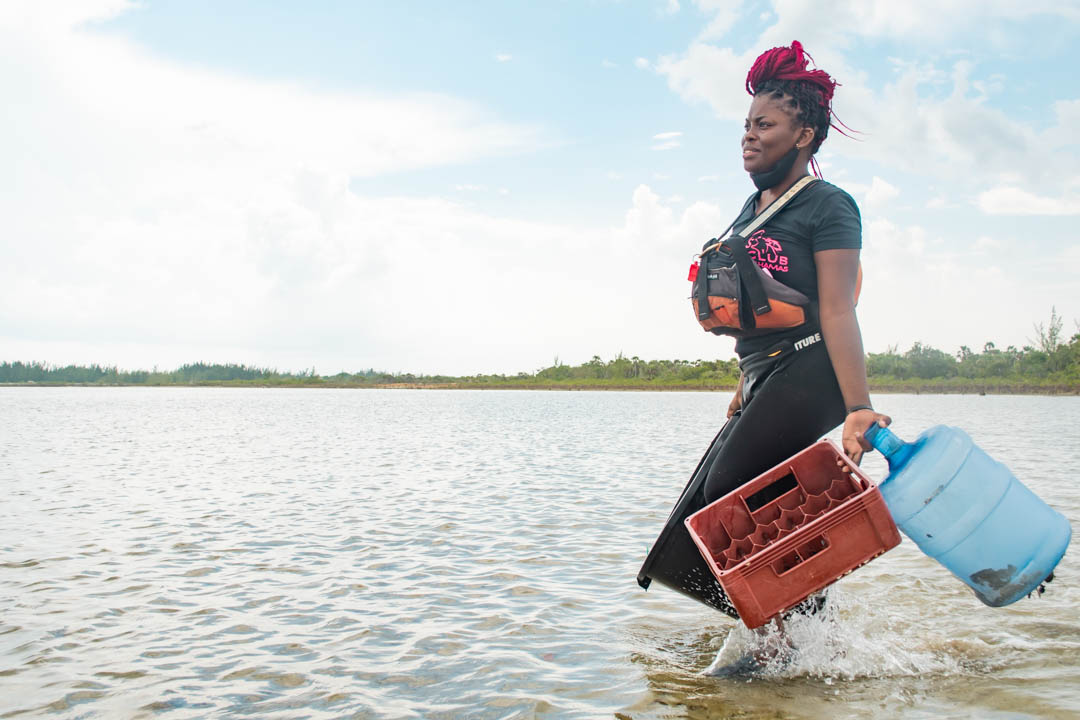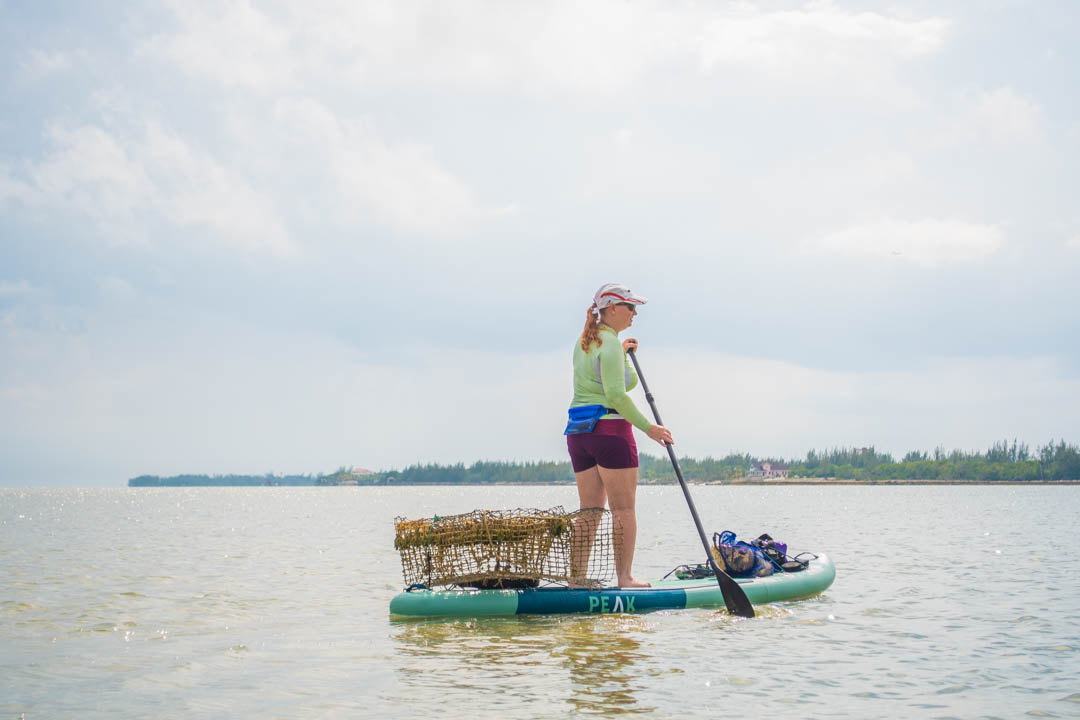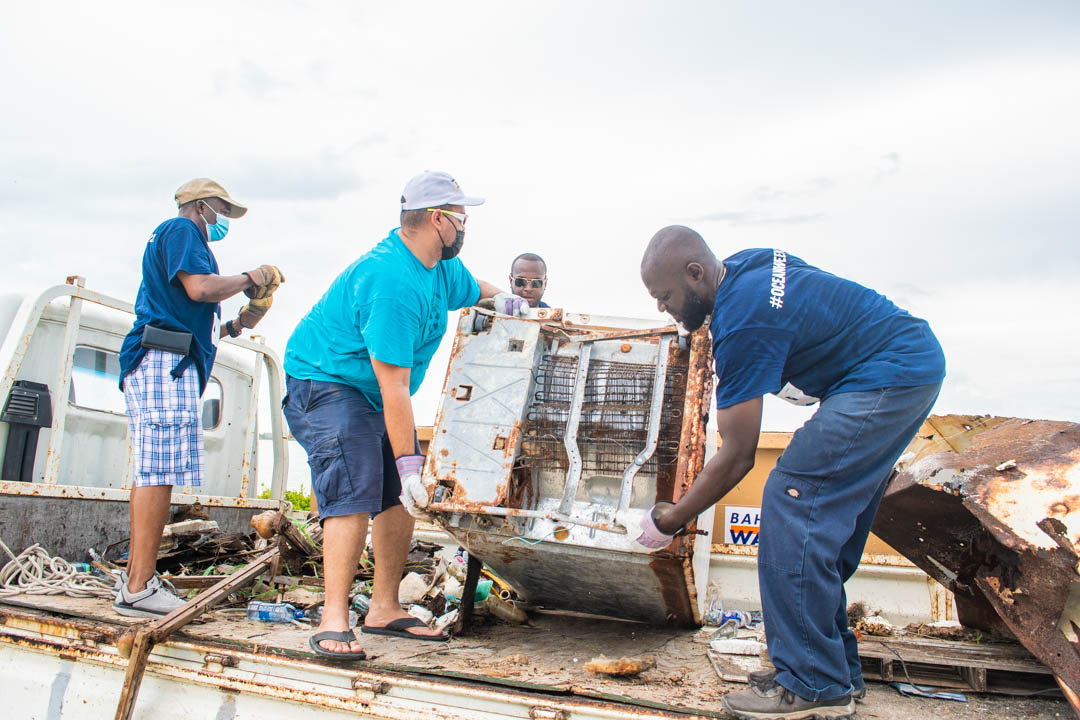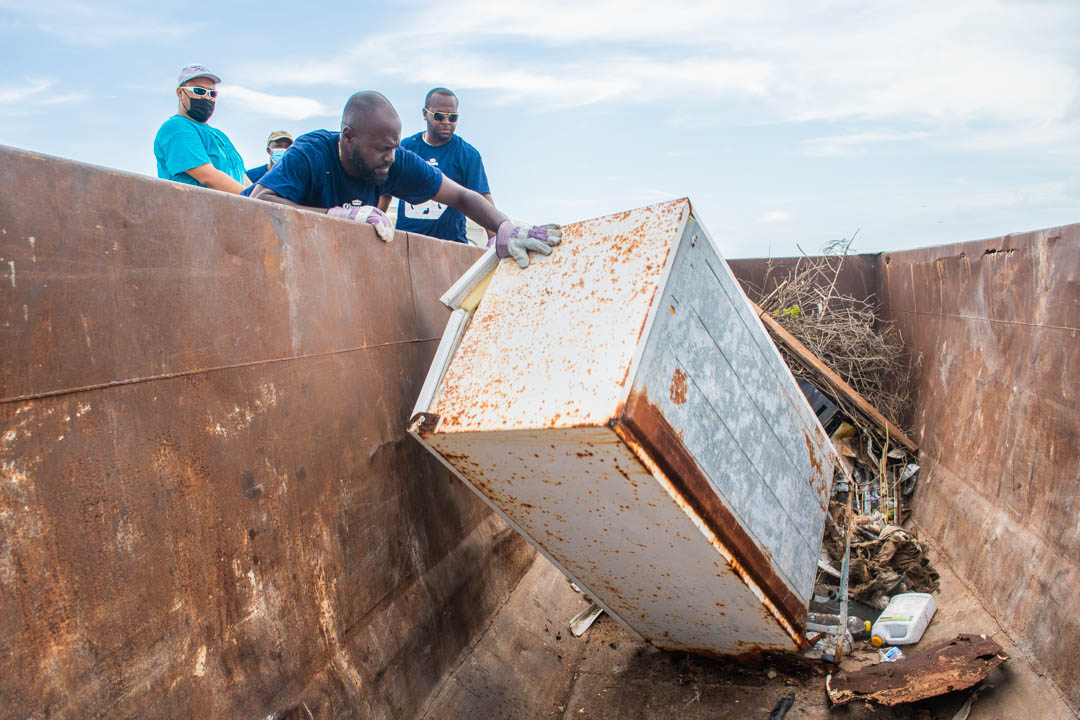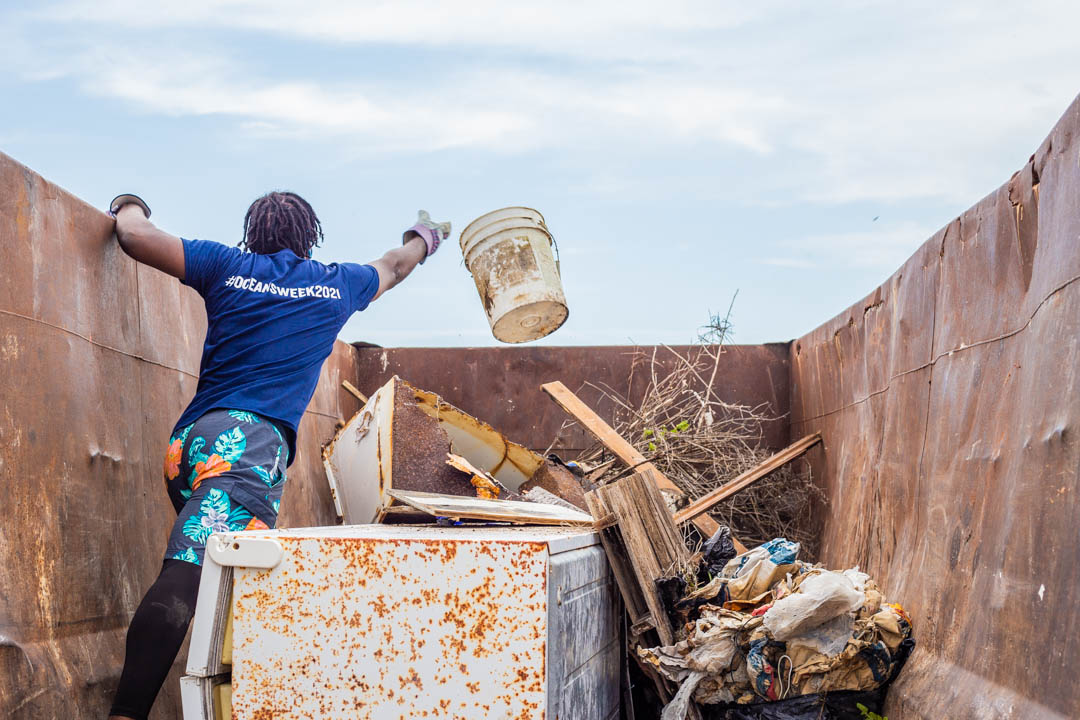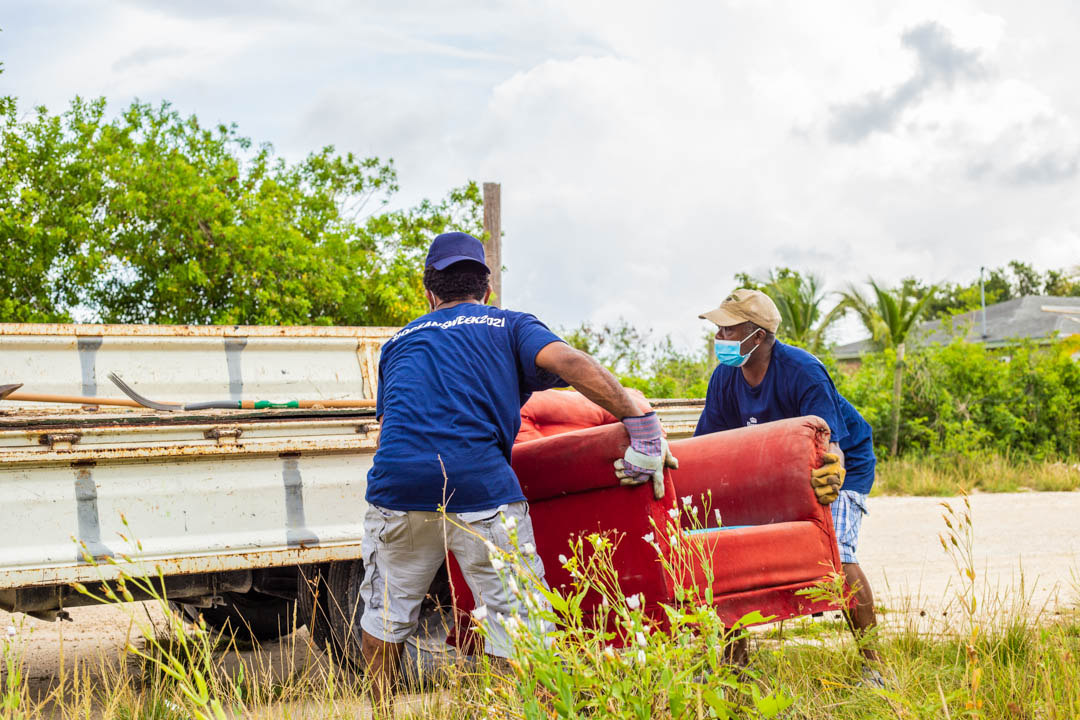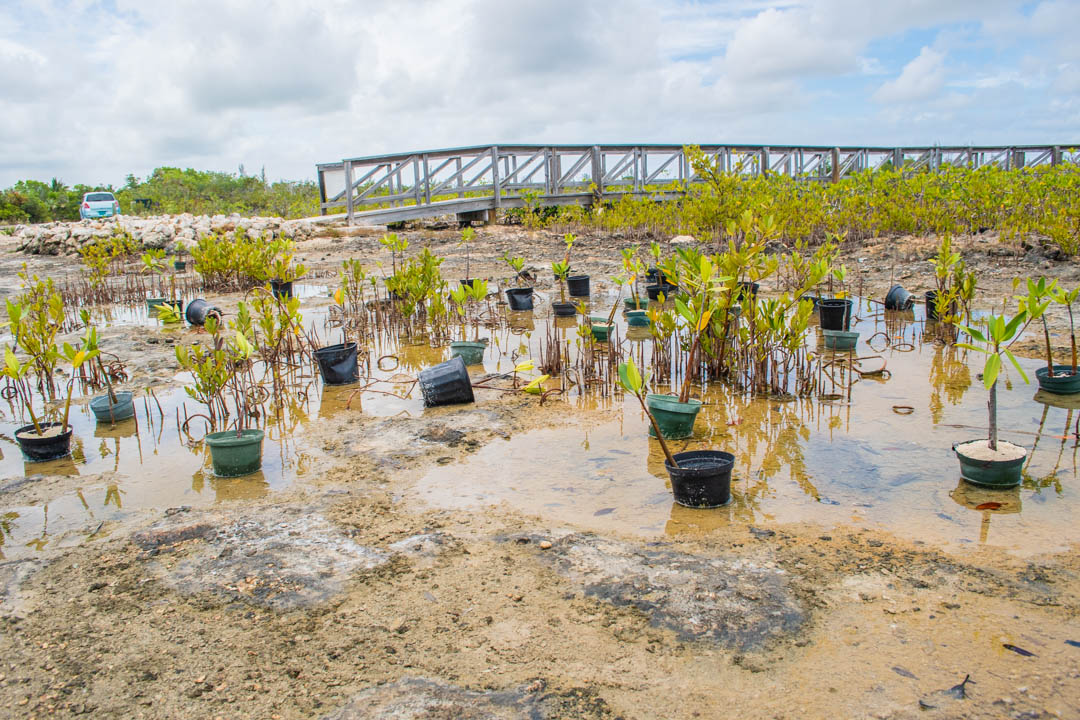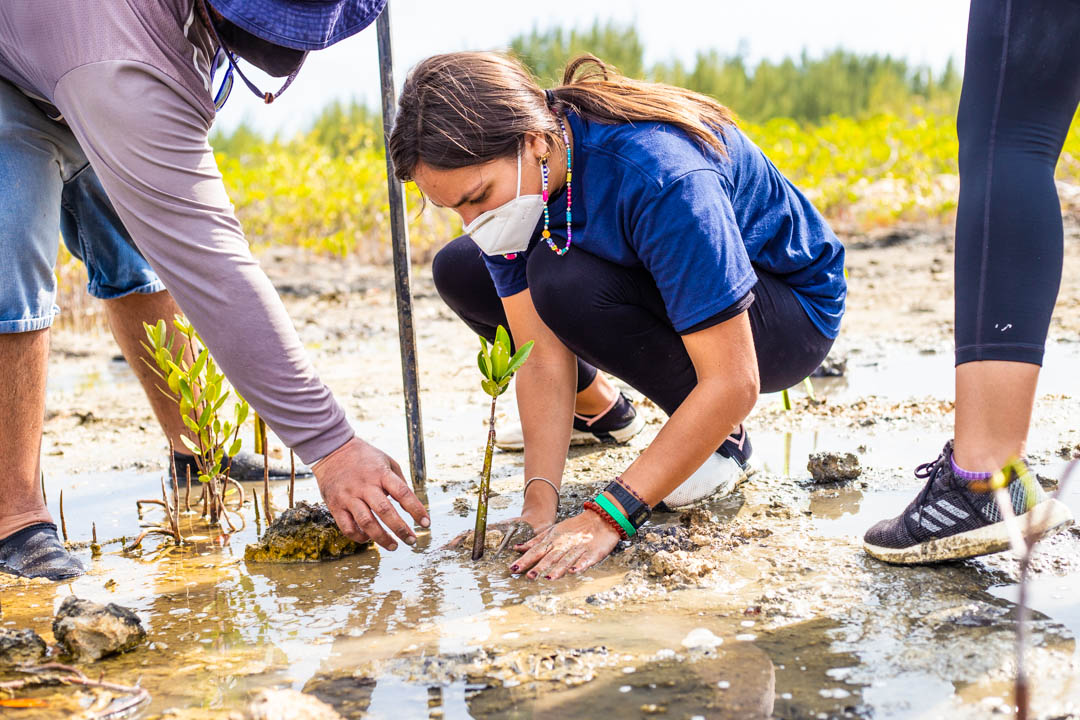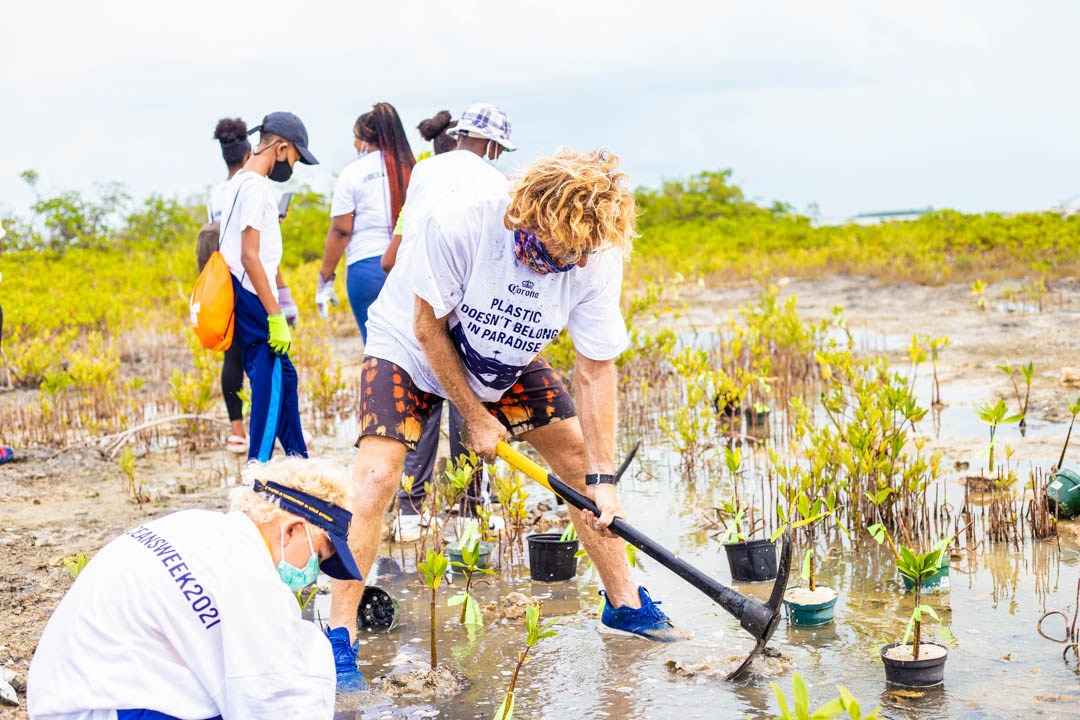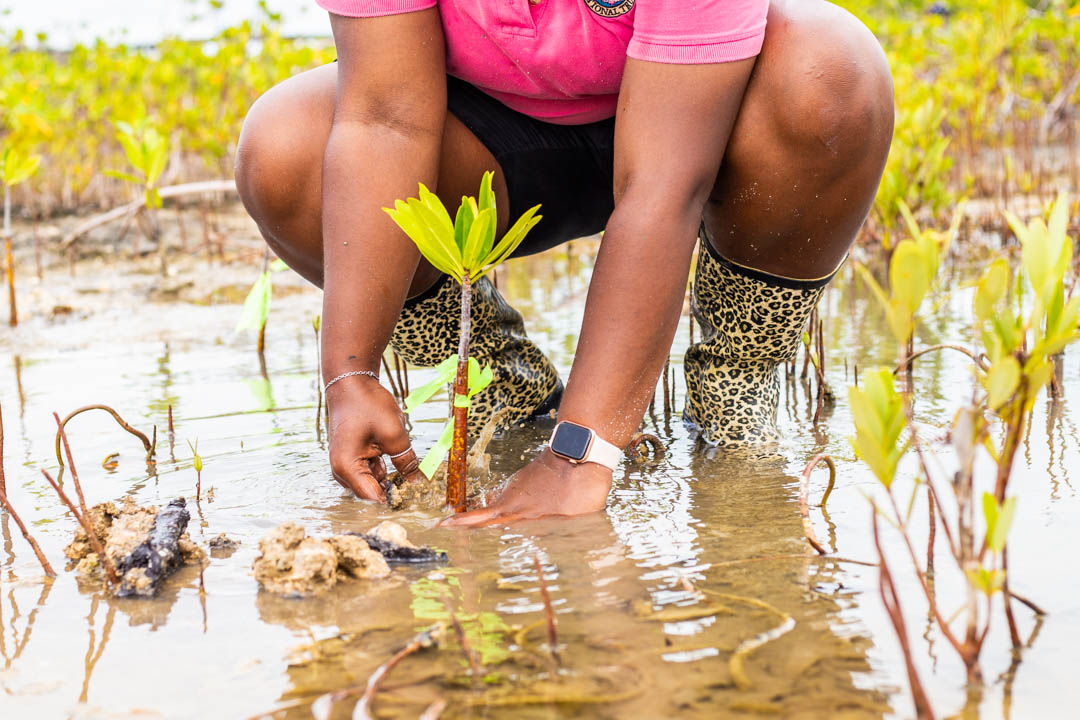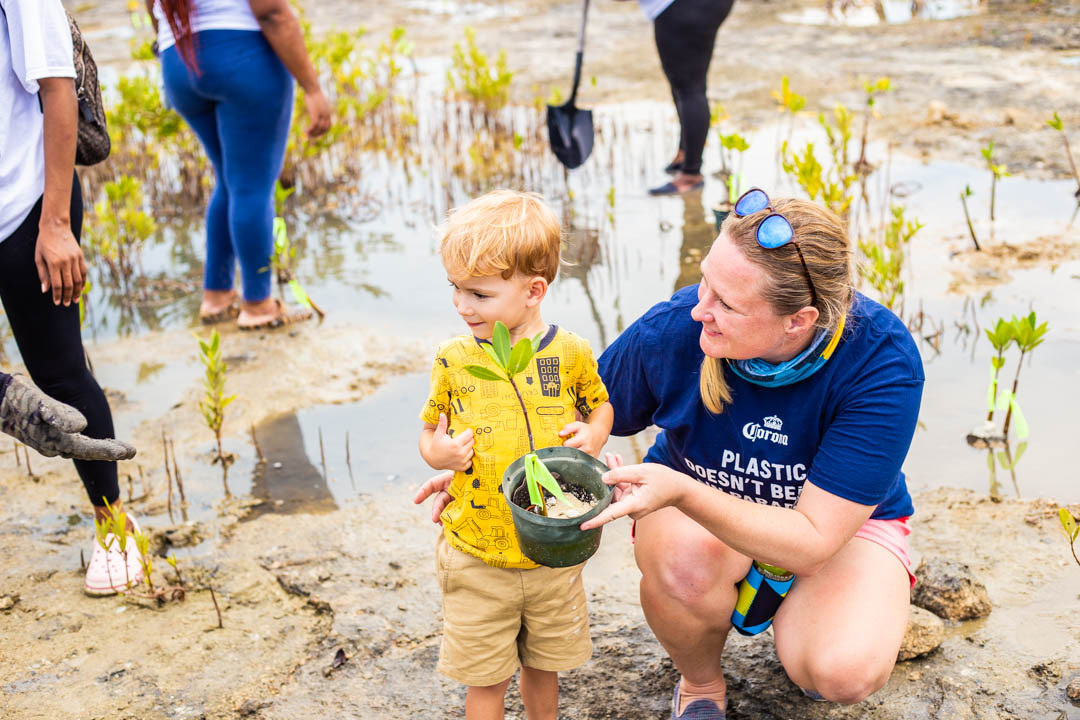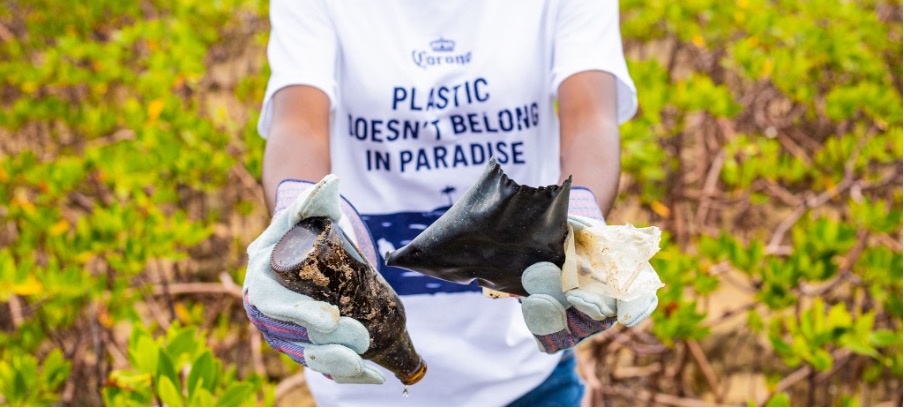
Combating pollution, planting mangroves, and drinking beer to protect paradise
June 21st, 2021
By Elijah Sands, Leah Carr
World Oceans Day is internationally recognized on June 8th as a day that raises awareness about the importance of our oceans and promotes how we can work together to preserve them. At The Bahamas National Trust (BNT), a lot of our work is focused on marine conservation. Over 90% of the national park system is coastal and marine environments.
The BNT was proud to collaborate with Corona Beer to recognize World Oceans Day and promote positive conservation action by celebrating #OceansWeek2021. Corona Beer prides itself as an environmentally conscious brand and has launched several creative marketing campaigns to raise awareness on plastic pollution.
“Corona was born at the beach, surrounded by the ocean. We believe that life is better lived with salty air in our lungs and sand beneath our toes; it’s where we feel at home. But today, that home is in grave danger from plastic. This material we use every day is drowning our oceans, killing our wildlife, and destroying our beaches.” – Corona Beer
Mangroves and the Ocean
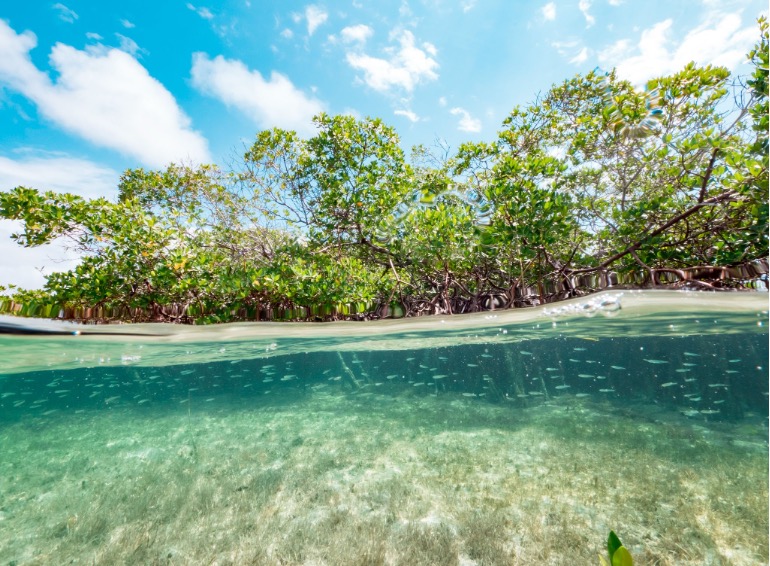
Bonefish Pond National Park protects a large tract of healthy mangrove forests
Mangroves and the ocean are closely connected. Coastal mangrove forests are essentially where the ocean meets the land. The health of one of these ecosystems affects the health and productivity of the other. Bonefish Pond National Park is one of the last remaining intact examples of this type of ecosystem on the island of New Providence.
Instead of conducting a traditional beach cleanup, we decided to have a mangrove cleanup. Because mangroves are paradise too, and #plasticdoesntbelonginparadise. Also, we wanted to have participants plant some mangroves and learn about their importance. The UN has declared 2021 as the beginning of the UN Decade on Ecosystem Restoration, and over the next few years, we plan to empower local communities to restore mangrove forests nationwide.
Combine trash cleanup, mangrove planting, and premium cold beer, and you end up with a day of true impact!
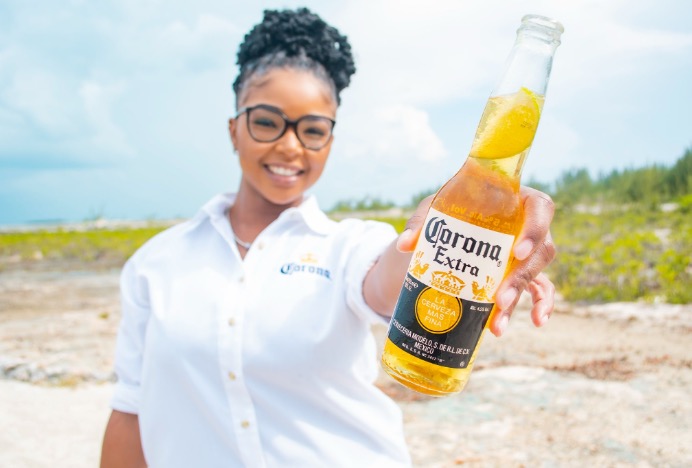
Volunteers enjoyed an ice-cold Corona after the cleanup event
The long roots of mangroves hold sediments in place, slow the movement of water, prevent erosion, and stabilize the coastline. To the same effect, they also hold things like fishing line, nets, bottles and other trash that end up in mangrove creeks. Ironically, this means when conducting a mangrove cleanup, you can find most of the trash lodged deep within the roots of red mangroves. So having groups only on land wasn’t going to be sufficient. We rallied up a group of dedicated volunteers to kayak into the mangrove system to target other isolated mangrove stands and shores.
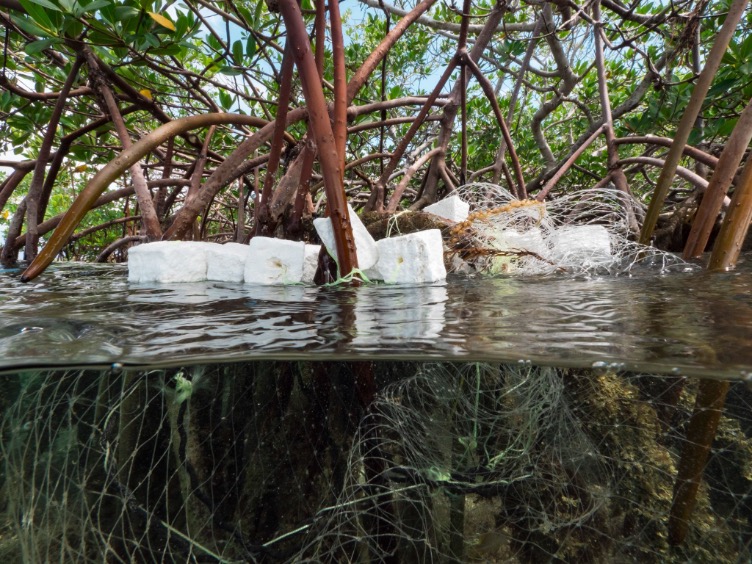
Fishing net caught up in the roots of red mangroves at BPNP
While the kayak team navigated the shallow creeks of the 1,200 acre park, removing styrofoam, plastic, ropes, and even a fish pot, another team assembled on the northeastern boundary of the park to target what we call “big trash.”
“Big trash” is furniture, construction waste, and other heavy waste like storage containers and vehicle parts that were illegally and intentionally dumped at this site. We hauled thousands of pounds of trash from this site alone.
Wetlands not Wastelands
Bonefish Pond, and mangrove habitats generally, were historically considered wastelands. Unfortunately, many sites in this park were used as a dumping ground and were in a state of deterioration prior to being made a national park in 2002. Some people still consider wetlands as ‘mosquito-infested swamps’ however, perspectives are changing.
One way we work to change people’s perspectives of wetlands is by providing them with access to these incredible areas to witness their beauty up close. We constructed a 600-foot boardwalk at the BPNP to allow people to traverse through a mangrove ecosystem without having to walk along the mushy, muddy bottom.
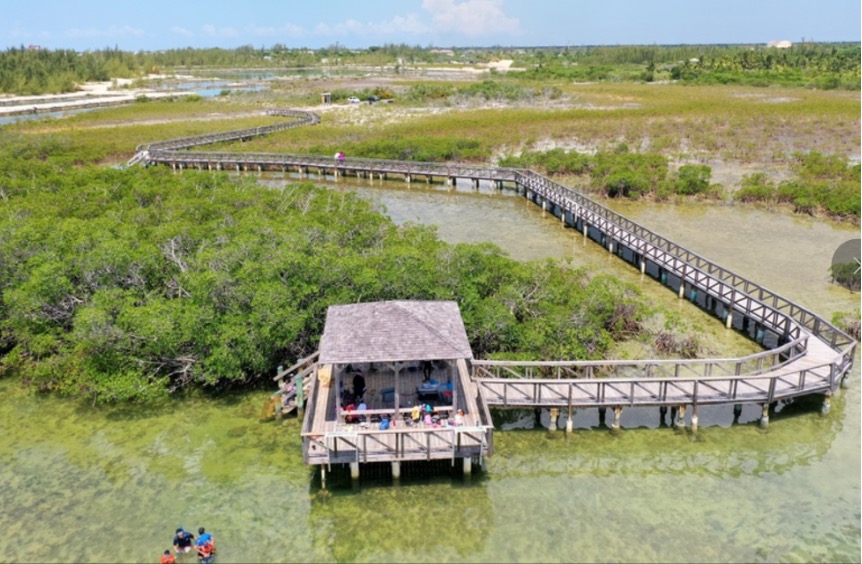
Mangrove forests are among the most productive ecosystems on earth, supporting tremendous amounts of biodiversity. They also provide us with many ecosystem services, including carbon storage, coastal protection from storms, water filtration, food, and livelihood provision among others. All the important fish and other animals we like to harvest from the ocean as part of our local diet grow up in mangrove ecosystems. Sounds like a place we should absolutely cherish, right? Doesn’t sound like somewhere to dump your old bathtub, or leave hundreds of yards of fishing line and nets to strangle marine life.
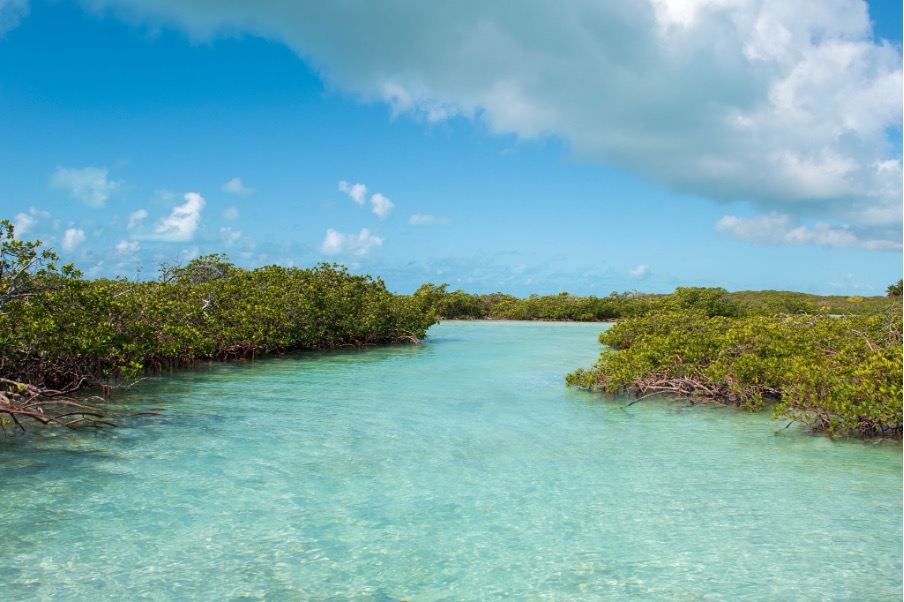
Despite their many benefits to our lives, mangrove habitats are under threat worldwide. Internationally, mangrove forests have been converted to commercial fish and shrimp farms, and are cut down for timber and firewood.
In The Bahamas, their biggest unnatural threat is development. Our national parks protect some of our mangrove forests from development, but they are still vulnerable to pollution and climate change. Destruction of mangrove forests removes wildlife habitat and deprives our fragile coastlines of protection from waves and storms and the many other ecosystem services that mangroves provide. We have hosted many cleanups over the years at BPNP and have removed tons of trash. But, Bonefish Pond is an area constantly in need of restoration.
During the cleanup, volunteers also had the chance to get their hands in the mud and plant Red Mangrove seedlings in an active restoration area. This area, scarred by illegal dumping in the past, has been the focus of mangrove restoration at BPNP. Planting mangroves is a great way to assist in the restoration of mangrove forests, especially those that have been damaged by events like hurricanes or development. It also helps to build the resilience of mangrove ecosystems against the effects of climate change.
Working Together to Protect Paradise
The BNT is working to maintain conditions for mangroves to grow and thrive. We are creating protected areas to protect large tracts of mangrove forests from ever being destroyed for development. We have also been working with our partners and local communities to restore mangroves ecosystems, including those damaged by Hurricane Dorian. We are gearing up to launch one of the biggest mangrove restoration efforts around the country.
We’re not doing this alone. We’re supported by a family of generous donors and dedicated members who fuel our work. You can become a part of this important work and help us to protect paradise by becoming a member of the BNT.
Cleaning up mangrove habitats is how we protect them today; your BNT Membership is how we’ll sustain them tomorrow.
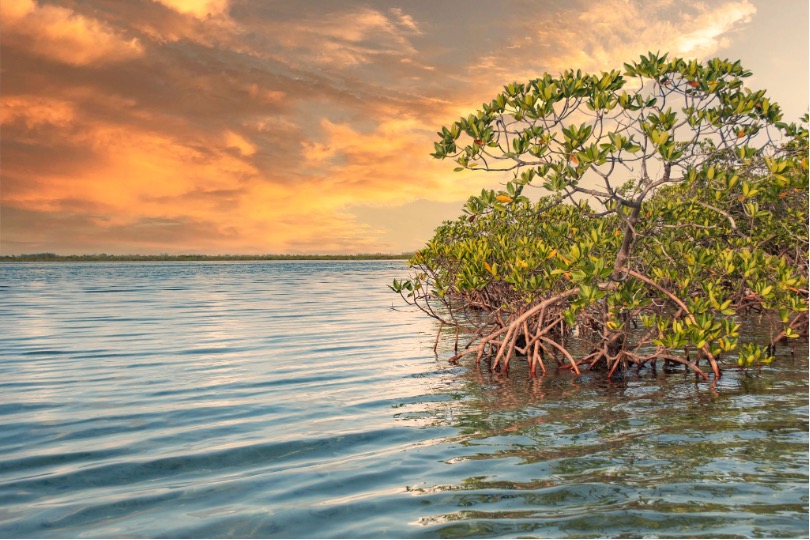
‘The Bonefish Pond National Park was created to protect 1,200 acres of coastal mangrove habitat
A special thank you to all of the members, corporate partners, donors and supporters of the BNT who participated in this cleanup initiative. You are helping us to preserve our environment for the future.
Photos: Zaria Dean, Leah Carr, Elijah Sands
